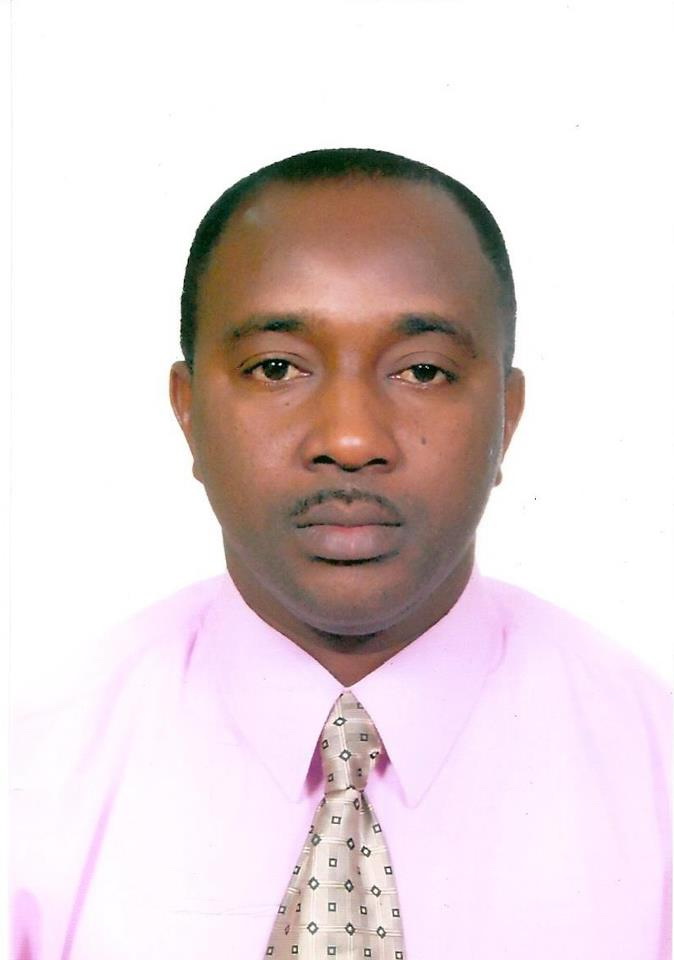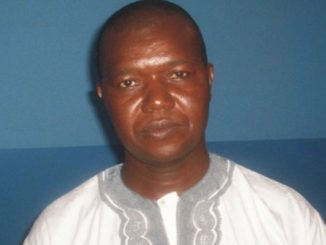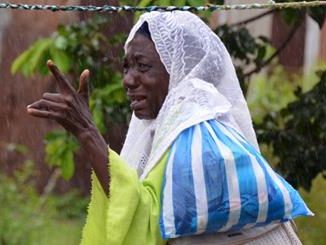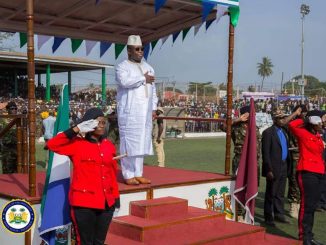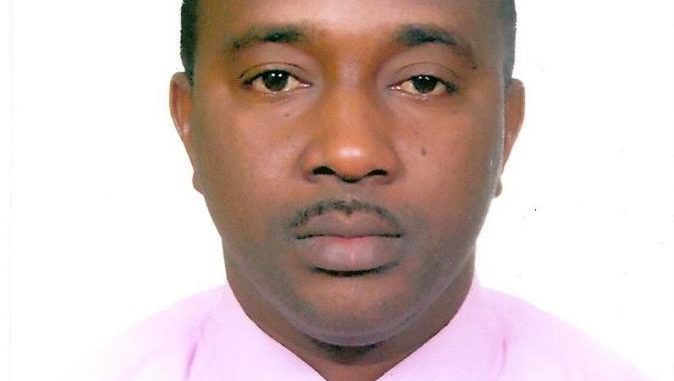
By Alhaji M.B. Jalloh, Information Attaché, Saudi Arabia and the Gulf States
The West African State of Sierra Leone with a population of over 7.1
million people, according to the recent provisional result of the December 2015 Population and Housing Census (PHC) conducted by Statistics Sierra Leone (SSL), will be celebrating her 55th Independence Anniversary on Wednesday, 27th April, 1961.
A former British colonized territory, Sierra Leone was declared an independent country by the British on 27th April, 1961 after 153 years of colonial rule. The celebration of Sierra Leone’s 55th Independence Anniversary on Wednesday will be a reflective moment for Sierra Leoneans given the tumultuous outbreak of the deadly Ebola Virus Disease (EVD) in the country between May 2014 and November 2015, when Sierra Leone was first declared Ebola-free by the World Health Organization (WHO). A recurrence of the virus was announced early this year by WHO and the Sierra Leone Ministry of Health and Sanitation when a patient with suspected Ebola case died in the Northern district of Tonkolili. But the situation has since been put under control and Sierra Leone is now Ebola-free.
Sierra Leone – a Democratic State
Since Post-Independence, Sierra Leone like other African countries; has undergone many political and economic transformations. Democratic dispensation was ushered in 1996, when the first democratic election was conducted by the Independent National Electoral Commission (INEC) set up by the then national Provisional Ruling Council (NPRC) military regime. The late former President, Alhaji Dr. Ahmad Tejan Kabbah, who won the Presidential run-off in the 1996 election ruled for two consecutive terms; though his first term was interjected by a military junta that was toppled in a military intervention after nine months in power. The current Sierra Leone’s President Dr. Ernest Bai Koroma succeed the late former President Kabbah in September, 2007 when he won the then ruling Sierra Leone People’s Party (SLPP) candidate in the Presidential run-off as an opposition leader of the All People’s Congress (APC), the party which is now in governance. A great deal of progress has been made in Sierra Leone in terms of good governance, democracy and human rights since the ushering in of the new political dispensation in 1996. For example, the late President Kabbah established many democratic institutions that had never existed in the country before, such as the Anti-Corruption Commission (ACC), National Public Procurement Authority (NPPA), National Revenue Authority (NRA), among others. The late President also transformed several public institutions like the Sierra Leone Police (SLP), Republic of Sierra Leone Armed Forces (RSLAF), the Civil Service and the Judiciary.
President Dr. Ernest Bai Koroma, who took off from where his predecessor stopped, has accelerated the process of development at an unprecedented level as evidenced by what his administration has done from 2007 to 2014 when the Ebola outbreak reversed all the gains that had been made in the aforesaid period. President Koroma fulfilled some of his electoral promises to the electorate through his vision for socio-economic development as contained in his Government’s Poverty Reduction Strategy Paper (PRSP) II which was articulated in the “Agenda for Change”. It was against the backdrop of the massive achievements in infrastructural development, health service delivery with particularly women, lactating mothers and children under-five years, education and in other sectors that Sierra Leoneans soundly endorsed President Koroma in the November 2012 Presidential election, when he polled 58% to avoid a run-off.
Agenda for Prosperity
Since 2012, Sierra Leone proactively tailored development framework to the 2030 Agenda for Sustainable Development. The Country’s vision for socio-economic development as contained in President Koroma’s Poverty Reduction Strategy Paper (PRSP) II, and articulated in the “Agenda for Prosperity”, was launched in July 2013 as Sierra Leone’s roadmap to the Post-2015 Development Agenda. The Agenda for Prosperity aims to build a sustainable future for all Sierra Leoneans. It demonstrates the Government’s firm commitment towards putting Sierra Leone on the path to resilience and sustainability. The Government has, to that end, recorded significant progress in strengthening political and economic governance, including improvement in social indicators. The Government has further placed emphasis on the protection of the basic rights of the people of Sierra Leone for example; the Government has put in place comprehensive reforms in the Justice Sector in response to both national and global demands to ensure that the rights of citizens are preserved and that access to justice is accorded to all. The Human Rights Commission of Sierra Leone closely collaborates with the Government in building an entrenched culture of human rights and in ensuring that the Government ratifies several outstanding international treaties and protocols as well as fulfilling its varied reporting obligations.
Under the leadership of President Koroma, Sierra Leone has undertaken specific reform measures to improve the national investment climate. His Government is keen on delivering results on several priority areas including infrastructural development, commercialized agriculture, improved access to education and healthcare services, youth empowerment, women’s empowerment, effective and efficient public service delivery and the social as well as political integration of persons with disabilities.
At the time when Sierra Leone was being commended by the international community for its remarkable progress in peace, stability and steady growth as a post conflict country, Sierra Leoneans were hit by the unprecedented Ebola Virus Disease (EVD) outbreak, which took a heavy toll on the entire socio-economic fabric of Sierra Leone. But the country fought back with support from development partners and international friends, including the Kingdom of Saudi Arabia, to defeat the deadly scourge.
Sierra Leone is Ebola –Free
While Ebola has ended and Sierra Leone is making progress in the implementation of the Post-Ebola Recovery Plan, the United Nations Agencies are playing a tremendous role in supporting the plan. President Koroma particularly commended the UN Secretary General, Ban Ki-moon, for mobilizing, for the very first time, a coordinated and integrated UN System intervention to support countries affected by the outbreak of the Ebola Virus Disease (EVD) in the West African sub-region. “In addition to the containment of the epidemic, the intervention by the UN and our partners has resulted in enhancing our preparedness to respond to similar outbreaks in the future. Indeed this is a useful model that can be applied to contain and tackle pandemic whenever they may surface,” said the President.
Post –Ebola Recovery Plan
In order to guarantee a lasting recovery, the Government of Sierra Leone, in collaboration with the Sister republics of Liberia and Guinea, has also formulated a sub-regional Post-Ebola Socio-Economic Recovery Plan to ensure that the three most Ebola affected countries return to the path of stability and prosperity. The Sierra Leone national recovery plan is based on two main pillars. The first pillar addresses immediate recovery activities that would help in getting to end maintaining zero infections. The second pillar focuses on building national systems of resilience and sustainability that include a viable health system and the establishment of integrated national security and disaster risk management system(s). The commitment demonstrated by the International Community in supporting the Post-Ebola Recovery Plans has been very encouraging with a considerable measure of satisfaction.
International Community Applauded
On behalf of the Government and people of Sierra Leone, President Koroma once again applauds development partners for their unflinching commitment to supporting Sierra Leone’s development aspirations. “Sierra Leone is poised and ready to continue working with the International Community to regain its pre-Ebola development programme”, President Koroma assured. “We look forward to strengthening partnerships for effective implementation of our Post-Ebola Recovery Plans, both national and Sub-regional”.
Sierra Leone’s Contribution to World Peace
In spite of the devastating effects of the Ebola outbreak on the economy, Sierra Leone continues to be very committed to promoting inclusion in governance, inclusion in development, and supporting peace around the world as a post-conflict country. The President believes that the country shall continue to support initiatives for the sustenance and expansion of democracy, peace and security in Africa in particular, and in the world at large. The contribution of Sierra Leone to the United Nations Peacekeeping efforts demonstrates the country’s strong commitment to global peace and stability. That is why the country acknowledges the Report of the High-Level Independent Review Panel on Peacekeeping Operations in all its aspects, and stands ready to explore further means to increase its contribution to global peacekeeping to enhance the success of UN peacekeeping operations.
Significant progress has been made in Sierra Leone over the eight years under the leadership of President Koroma; though his Government is faced with many other challenges including the successful implementation of the national Ebola recovery plans. As Sierra Leone celebrates its 55th Independence Anniversary this week, it is important to reflect on its economic, political, social and cultural transformations as well as the recent unprecedented outbreak of the wicked endemic that took its toll on the lives of over 3,500 Sierra Leoneans, including a good number of healthcare workers in the country. Over ten renowned medical Specialists and hundred nurses perished during the Ebola outbreak, including the only virologist in the country, the late Dr. Umar Khan.
Investment Climate in Sierra Leone
Since the Sierra Leone Government undertook specific measures to improve the national investment climate, direct foreign investment has been on the rise with the establishment of multinational companies in the mining industry, in the agricultural sector, forestry and many other sectors in the country. But the two multinational companies that were the economic drivers in the rapid economic growth of the country – London Mining Company and African Minerals Limited – went into administration during the Ebola outbreak and dealt with a severe blow to the economy. The fall in the price of iron ore in the international market, which the two companies were mining in Sierra Leone, was perhaps the major factor that sent them into administration. The African Minerals Limited has however been taken over by a Chinese company – Shandong Steel and Iron Company, whilst the Romanian billionaire Frank Tunis, who initially had 70% shares in African Minerals Limited, used his subsidiary company to take over London Mining Company. Sierra Leone is being described by many visitors from abroad as a virgin land for investment given that the country is naturally endowed with abundant resources many of which are yet to be explored. The country is abundantly rich in the deposits of diamonds notably gem stones, iron ore, bauxite, rutile, zircon, cotton, gold and many other minerals that are yet to be tapped. Though the exploration and mining of those large deposits of minerals is highly capital intensive, they are gradually attracting foreign investments with the end of the Ebola virus. With the improved national investment climate in the country, Sierra Leone is attracting more investors in the mining sector.
There are many other sectors that would bring economic boom if they attract direct foreign investments, such as the tourism industry and the agricultural sector. The tourism industry used to contribute greatly to the economy until the civil conflict in Sierra Leone broke out in March 1991, when most of the investors in the industry fled the country for their safety. With the end of the 11 years civil conflict in April 2002, the tourism industry is gradually recuperating with bright future as evidenced by the recent visit of 105 tourists to the capital of Freetown. In the agricultural sector, the viable lands in Sierra Leone remain under-utilized. In a recent news conference at the World Bank Country Office in Freetown on Monday 14th March, 2016, where a new World Bank project was launched to support smallholders commercialization in Sierra Lone, the Country Manager disclosed that out of the 4.5 million hectares of arable land the country has, only 12% has been cultivated. About 60% – 70% of Sierra Leoneans are engaged in agriculture but most of them practice subsistence farming because they are poor to embark on commercialized farming which is capital intensive.
Big agricultural projects are sponsored by development partners while only a few Sierra Leoneans have the capital and willingness to invest in agricultural at commercial level. If well invested in by foreign investors, the Sierra Leone arable land would produce enough food for Sierra Leoneans and for exportation as well. This could also be an area of attraction for direct foreign investments and recent reports are that a foreign company will start operating in Torma Bum in the Southern District of Bonthe. Torma Bum has hundreds of thousands of hectares of arable land that used to produce the staple food, rice, for both internal and external use from Post-Independent era to the late 1980s. Torma Bum will definitely rise again when the foreign company invests in the vast land.
Business Registration
The relaxation of the bureaucratic bottlenecks for the registration of business has also attracted more investors in the country as it takes less than 72 hours to register a new business with the Office of the Registrar General. Above all, Government has implemented measures to protect investors and their investments.
Sierra Leone- a Blessed Nation
Sierra Leone is one of the finest countries in Africa. She is blessed with the second largest natural harbour on earth after Australia. The country is remarkably beautiful, with pristine beaches, green mountains, and jungles that remain largely untouched. It has friendly people with political and religious tolerance. Our flora and fauna, and our beautiful monuments like the famous Bounce Island where slaves were shipped to America during the Atlantic slave trade, the Tambakha Kilimi Reserve in the Tambakha Chiefdom, Bombali District and other areas in Kabala, Shenge, Sulima, Pepel and Bonthe are beautiful and still remain as major tourist attraction areas in the country.
The issues I have highlighted in this article and others I did not mention which Sierra Leoneans will be reflecting upon on Independence Day are very crucial to putting Sierra Leone on the path to resilience and sustainable development. And as the people of Sierra Leone celebrate their country’s 55th birthday, they should have all reasons to be optimistic rather than being pessimistic because our future as a nation is very bright. They should hope that more investors will storm the country to enhance economic growth and create more job opportunities.
Happy Independence to all Sierra Leoneans at home and abroad!!

